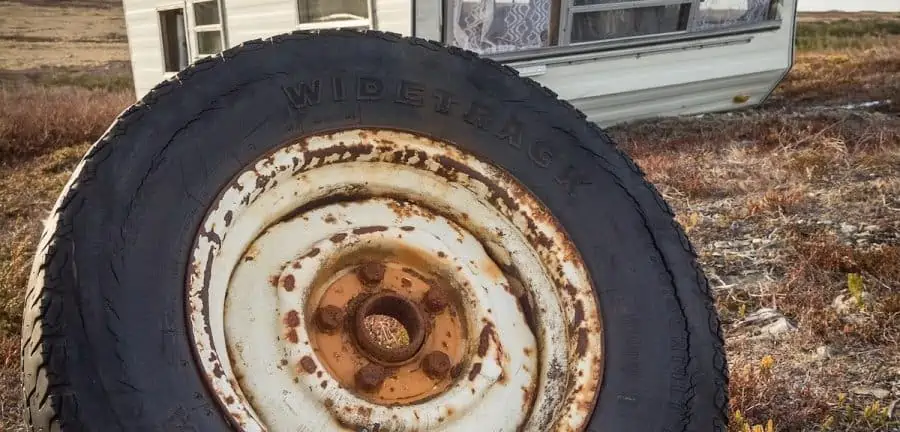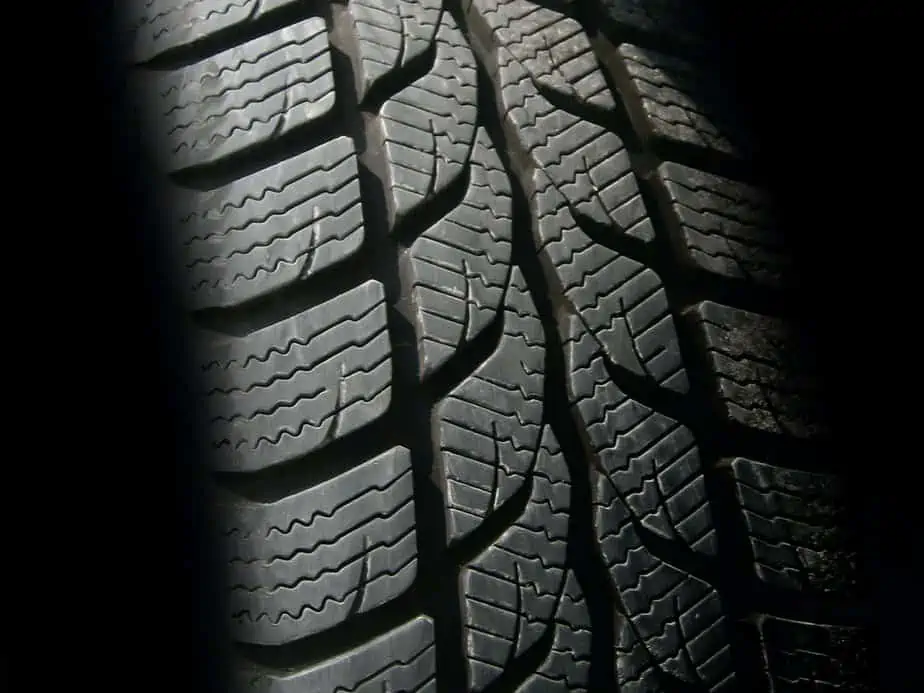Whatever is connected to your hitch, whether it be a freight trailer, a boat, or a camper, requires the same care as your vehicle. In this case, we are talking about trailer tires. Just like any other thing, tires also wear out. It can be very inconvenient, especially if you use it for commuting. These trailer tires can wear out quickly, making you wonder why.
Friction and rolling resistance are the main reasons for the wear and tear on your tires. Factors such as the tire size, trailer weight, tire pressure, and speed expedite the process of the trailer tires wearing out due to their effect on the increase or decrease in friction and rolling resistance, which causes the main tear on your tires.
It can be quite frustrating if your trailer tires wear out so fast, so it is important to know the reasons why before you tackle them. In this article, we will discuss the reasons why your trailer tires wear out so fast and what measures you can take to avoid that.

Contents
Reasons Why Your Tires Wear Out So Fast
If you’ve ever driven a lot on your car or trailer tires, you know that they wear down more quickly as the miles you travel on the road increase. There are steps you can take to reduce tire wear, such as keeping your car and trailer tires well-maintained, but there is no way to prevent it completely. In actuality, it is a byproduct of the laws of physics at play.
Tire wear and tear are caused by friction and rolling resistance. Friction is the force that exists between two items in touch with each other, such as a vehicle tire and the road surface (the road also contains friction, although it is much lower).
Rolling resistance describes how your tires react to how the road surface interacts with them, specifically how much force they absorb or transfer to turn one direction (towing) versus another (driving). The wear and tear on your trailer tires are simply the results of these two forces working on them.
Here’s a video to help you make sure your trailer tires don’t wear out too fast:
The process of trailer tires wearing out can speed up besides the natural wearing out process due to the following reasons:
1. Over Loading Or Under Loading
Check that your trailer is not overloaded. When your trailer is overly hefty, the tires must work harder with more pressure. Hence they will wear out faster.
On the other hand, if you notice faster wear on the outer tread of the tire, you may have an under-loaded trailer: the trailer weight is insufficient to straighten the axle. Alternatively, outer tread wear on only one side could be a sign of a worn suspension component.
To establish how much weight your trailer can safely transport, consult the owner’s manual or a competent specialist. Once you’ve determined the weight limit, make sure not to exceed it.
2. Wrong PSI In The Tires
You must verify that your tires are properly inflated. Your tires will wear out faster if they are over or under-inflated. To ensure your trailer tires have the proper tire pressure, consult the owner’s manual or a qualified professional. They will be able to assist you in determining the appropriate PSI for your specific model.
3. Rough Terrain
Traveling on unpaved roads or other rough terrains regularly might also cause your tires to wear out faster. These surfaces can be difficult on tires, causing them to fail earlier. These roads may have more road hazards, such as debris and bumpiness, that can cause your tires to be damaged.
4. Exceeding The Speed Limit
Trailer tires have a speed rating that shows how quickly they can go while remaining safe. The tire may overheat and fail if you go faster than this limit. There will be more friction and rolling resistance, so if you exceed the speed limit frequently, they can wear out much faster.

Are Bigger Tires Better For Trailers?
Larger tires simply have a greater carrying capacity than smaller ones. The most obvious advantage is that larger tires simply have more capacity than smaller ones. This means they can bear more weight and provide stronger support for your trailer, which is very important while carrying hefty cargo.
Furthermore, larger tires provide a smoother ride. This is because they have a larger footprint, which helps to disperse the weight of your trailer equally. If you plan on doing a lot of traveling with your trailer in tow, this might be a huge benefit.
Finally, larger tires can improve handling on and off the road. If you want to conduct any real off-roading with your trailer, wider tires will provide superior traction and stability. With a strong grip, bigger tires can overcome any unstable track.
Although bigger tires can be better in terms of their durability, they can make your trailer more difficult to operate. This is due to its wider turning radius, which can make tight maneuvers difficult. Smaller tires may be a better alternative if you plan to drive a lot in urban areas or in narrower areas.
Furthermore, larger tires might put an additional load on your towing vehicle. That means you’ll need to make sure your car is capable of towing a greater load. Otherwise, you risk harming your vehicle or voiding its warranty. Smaller tires may be a better alternative if you’re concerned about cost or usability, but if you want more durable tires that don’t wear out so easily, bigger tires are the better option.
Conclusion
We know that trailer tires wear out because of the rolling resistance and friction effect on the tires over time. However, poor maintenance may expedite the process of these trailer tires wearing out. If you are looking for more durable trailer tires, you may want to consider bigger tires.
